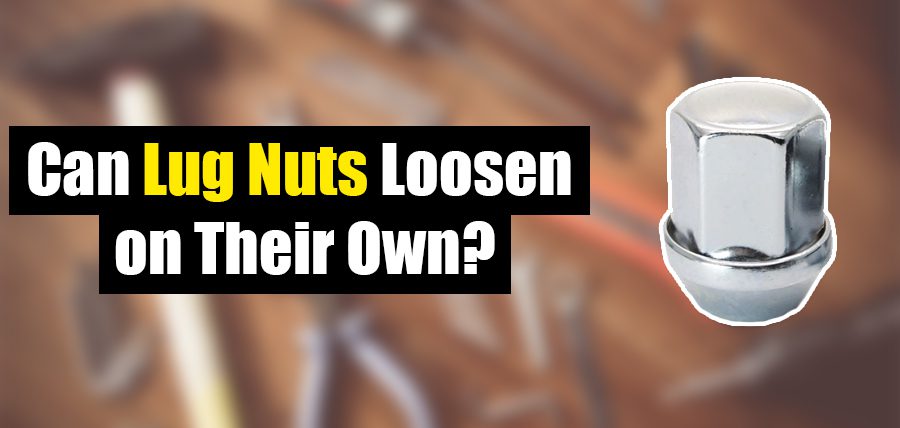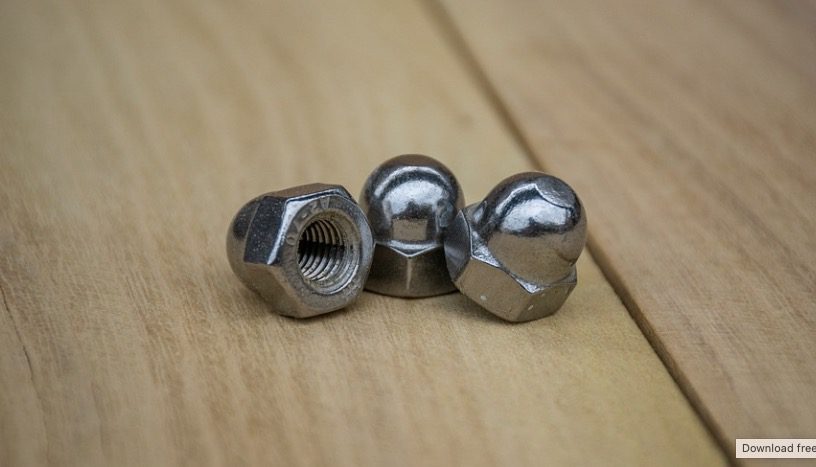If you’ve been driving for years, you probably wondered if you car’s lug nuts can loosen on their own.
Well, let me tell you that many people out there have that question and, sadly, it’s not easy to find an answer online.
The thing with lug nuts is that if you don’t give them the attention they deserve, you could end up in a world of pain (think wheels flying off mid-drive or warping brake rotors).
So, let me tell you about the importance of lug nuts, how they work their magic, and the burning question on everyone’s mind: “Can lug nuts loosen on their own?”
Let’s do it!
Why Lug Nuts Are Important
Lug nuts are the unsung heroes that your wheels attached to your vehicle, and let me tell you, they’re pretty darn important.
These little guys are responsible for securing the wheel to the car’s hub, ensuring a safe and smooth ride, while also helping maintain proper alignment, tire wear, and overall vehicle performance.
Now, if you go ahead and neglect these you can cause catastrophic consequences like a wheel flying off mid-drive, your car’s suspension taking a hit, or even warping brake rotors.
So, making sure they are well secured (by using an impact wrench) might be a great idea.
Not only that, but lug nuts are also important when it comes to heavy machinery and industrial equipment as they play a crucial role in securing and stabilizing components.
So, next time you’re marveling at a construction crane or an assembly line, remember it’s the humble lug nut that’s keeping things together.
How Lug Nuts Work
Lug nuts are these little dudes that keep your car’s wheels attached to the hub or axle, and they do it by working together with another essential component called wheel studs.
Here’s how they make it possible:
- You can find the studs sticking out of the wheel hub or axle. These are like the backbone for the lug nuts. Depending on your car, you’ll have anywhere from four to eight of these bad boys in each hub.
- To get your wheel on there, you line up the holes in the wheel with the wheel studs. The holes are designed just right so the lug nuts and wheel studs fit together perfectly.
- Now you’re ready to put the lug nuts on the wheel studs. Start by threading them on by hand, making sure they sit nice and snug on the wheel.
- Grab your lug wrench, impact wrench, or torque wrench, and start tightening those lug nuts in a specific pattern, like a star or crisscross. This is crucial because it keeps the pressure even across the wheel, so you don’t end up with any warping or weirdness.
- You gotta make sure you tighten the lug nuts to the right torque. The car’s manufacturer will have that info for you. If you go too tight, you can stretch or break the wheel studs, and if you go too loose, well, that wheel might just decide to go solo while you’re driving.
Can Lug Nuts Loosen on Their Own?
Let’s chat about a question that’s been popping up in garages and online forums: “Can Lug Nuts Loosen on Their Own?”
It’s a question that keeps people guessing, especially when they’re looking to keep their rides safe and secure.
So, let’s give it a shot and answer it:
Vibrations
Picture this: your car’s cruising down the road, experiencing all sorts of vibrations. Well, those vibes can gradually loosen your lug nuts over time.
Why?
Because constant movement and motion put repetitive stress on the lug nuts. Factor in road conditions, vehicle weight, and your sweet driving skills, and you’ve got a recipe for some loose lug nuts.
Even if you tightened them like a pro when you first installed the wheels, those vibrations don’t discriminate.
So, be sure to regularly check your lug nut torque and keep ’em nice and tight for a safe drive.
Over-tightening
Over-tightening your lug nuts using a high torque tool like an impact wrench can actually cause them to loosen over time.
I know, this sounds a bit weird, right?
But here’s the deal: when you go all Hercules on those lug nuts, you can strip the threads on both the lug nuts and wheel studs. Not gonna work.
So, you might wanna dial it back a bit. By tightening the lug nuts correctly, you’ll ensure they’re snug without damaging the threads.
Remember, too much of a good thing can actually be a bad thing.
Under-tightening
Under-tightening is just as problematic as over-tightening as if your lug nuts aren’t tightened to the proper torque specifications, they can loosen while you’re driving.
Imagine your wheel wobbling and even detaching from your car while cruising down the road – it’s incredibly dangerous and can lead to accidents and injuries.
So, what’s the solution?
It’s simple: use an impact wrench to tighten your lug nuts to the recommended specifications as this ensures they’re neither too loose nor too tight, and will stay securely fastened while you’re on the road.
Rust
Rust is like the silent killer of lug nuts and wheel studs as once it sets in, it can make them refuse to turn as easily as they should, it’s a struggle to tighten them down properly.
But wait, there’s more!
Rust doesn’t just make your lug nuts stubborn. It also weakens the metal, making them more susceptible to breaking.
Imagine driving along, minding your own business, when suddenly your lug nut snaps – not good news.
The takeaway here?
Keep an eye on those lug nuts and wheel studs for any signs of rust. If you spot any, it’s time to take action and replace them before they cause you a world of trouble.
Wear and Tear
You see, every time you drive your car the threads on your lug nuts and wheel studs can wear down. And as they wear down, it becomes easier for them to loosen up over time.
So, what can you do about it?
Well, first of all, don’t panic. It’s just a natural part of the automotive life cycle. But that doesn’t mean you should ignore it.
Make sure to check the torque on your lug nuts regularly, and if you notice any signs of wear, don’t hesitate to replace them.
Signs That Lug Nuts Are Loose
How to Tighten Loose Lug Nuts
If you suspect that your lug nuts are loose and you don’t know what to do, don’t sweat it.
Here’s a handy step-by-step guide to help you out:
- Gather your tools: You’ll need a torque wrench or an impact wrench and a socket that matches the size of your lug nuts.
- Jack it up: Use a car jack to lift the car off the ground and support it with jack stands. This gives you easy access to the wheel and ensures your safety while working on the car.
- Loosen those nuts: Use the lug wrench to loosen the lug nuts on the affected wheel. Turn them counterclockwise until they’re loose, but don’t remove them completely yet. You want to make sure you can clean the studs and wheel hub first.
- Off with the wheel: Once you’ve loosened the lug nuts, go ahead and remove the wheel. This will give you access to the studs and wheel hub.
- Clean the studs: Grab a wire brush and clean the studs and the inside of the wheel hub. This will ensure a solid connection when you reinstall the wheel and help prevent any future loosening.
- Wheel it back: Place the wheel back onto the hub and hand-tighten the lug nuts. You’re almost there!
- Tighten ’em up: Break out your torque wrench or impact wrench and tighten the lug nuts to the manufacturer’s recommended torque setting. Remember to use a star pattern for even tightening, and to avoid any unwanted surprises.
- Lower and go: Once the lug nuts are tightened, lower the car back down to the ground and remove the jack. Give each lug nut one final check with the torque wrench or impact wrench to make sure they’re good and tight.
Preventing Lug Nuts from Loosening
Maintaining the proper tightness of lug nuts is a crucial part of keeping your wheels secure and ensuring a smooth, safe ride.
Despite this, it’s often a neglected aspect of car maintenance.
But don’t worry, we’ve got some tips for you to keep those lug nuts snug and secure:
Use an Impact Wrench
An effective way to prevent your lug nuts from loosening is by using an impact wrench which makes it easier to tighten lug nuts to the recommended specifications.
But, like anything powerful, it’s important to use it responsibly.
Be cautious and avoid over-tightening, as this can cause the lug nuts to snap or damage the wheel studs.
I mean, you don’t want to turn a small issue into a big problem, right?
Replace Lug Nuts Regularly
Lug nuts, are responsible for keeping your wheels securely attached to your car.
They do this by taking on a boatload of stress and pressure, especially when you’re cruising on rough or uneven terrain.
This relentless strain can lead to wear and tear, stripping, or even cracking.
That’s why it’s important to show them some love and replace them regularly, especially if you start noticing any signs of wear and tear.
Enter the impact wrench, your trusty sidekick in the world of lug nut maintenance.
This powerful tool is just what you need to tighten those new lug nuts to the proper torque specs, ensuring they stay put and keep your wheels secure.
Use Thread-Locking Adhesive
Let’s say you’re looking to go above and beyond in your quest to keep your lug nuts from loosening.
In that case, I’ve got just the secret weapon for you: thread-locking adhesive.
This adhesive is applied to the threads of the lug nuts and works like a charm, keeping them locked in place even when faced with high stress and vibrations.
But hold on, don’t go slathering any old adhesive on your lug nuts.
It’s essential to choose one specifically designed for use on these little guys. You want a thread-locking adhesive that can handle the heat, both literally and figuratively, as it’s formulated to withstand the high stresses and temperatures that come with wheel use.
Keep Wheels Clean
Here, we’re talking about keeping your wheels clean, and no, it’s not just about making them look pretty.
Believe it or not, keeping those wheels clean plays a crucial role in preventing your lug nuts from loosening.
I know what you’re thinking: “What does dirt have to do with my lug nuts?” Well, let me tell you – it’s a bigger deal than you might think.
You see, when dirt and debris build up between the lug nuts and the wheel, they create a barrier that stops the lug nuts from tightening properly.
And guess what?
That can cause them to loosen over time, even if you’ve initially torqued them to perfection.
But don’t worry, keeping your wheels clean isn’t some arduous task as with a simple rinse with a hose or a quick wipe with a clean towel should do the trick.
Check Lug Nuts Regularly
When it comes to staying safe on the road, one thing you absolutely can’t ignore is the tightness of your lug nuts.
Trust me, the last thing you want is to experience that terrifying wheel wobble or, heaven forbid, lose a wheel while you’re cruisin’ down the highway.
So, here’s what I suggest: every time you have your tires changed or any work done that involves removing the wheels, check the tightness of your lug nuts with an impact wrench. This way, you can catch any loose lug nuts before they turn into a nightmare.
Frequently Asked Questions
How long does it take for loose lug nuts to come off?
Loose lug nuts can really skedaddle in no time flat—I mean, we’re talking minutes here.
This can happen when those lug nuts aren’t given the proper torque, or they simply become loose after some wear and tear (as we’ve already touched on before).
So, if those lug nuts decide to loosen up, your wheels might start coming off. And trust me, you don’t want that.
To avoid this serious scenario, I highly recommend making it a habit to check the tightness of your lug nuts every now and then.
Grab that trusty impact wrench, and let’s keep those wheels firmly attached!
Will loose lug nuts cause noise?
Yes, loose lug nuts can be the reason behind rattling or vibrating noise when you’re driving.
Here’s the deal: when those lug nuts are loose, the wheel will start wobbling around, and as it gets looser, you might hear vibrations or a hum that turns into a full-blown rattling.
To solve this issue, you have to:
- Pull over: Find a safe spot to park and give those lug nuts a once-over.
- Inspect the lug nuts: Check each one to see if they’re loose or even missing. Keep an eye out for any other signs of wear or damage while you’re at it.
- Tighten up: If you’ve got a lug wrench or an impact wrench, give those loose lug nuts a good tightening. Just remember not to overdo it, or you’ll be back at square one with a whole new set of problems.
- Get a professional inspection (optional): If you’re not confident in your lug-nut-tightening skills or if the issue persists, take your truck to a mechanic for a proper checkup.
Can lug nuts go bad?
Yes, lug nuts can go bad just like anything else.
And when they do, it’s not just about them being loose – they can also become worn, rusty, or damaged from all the beatings they take on the road as salt, moisture, and harsh conditions can really do a number on those little guys.
Now, the key to avoiding this is to replace them regularly. Keep an eye out for any signs of wear or damage, like cracks or corrosion and replace them fast.


